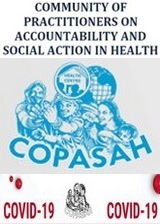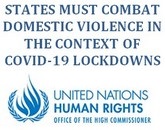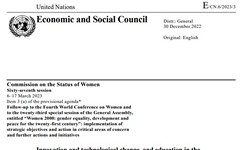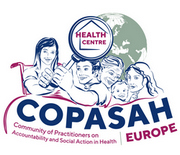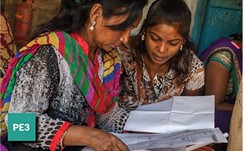
Groups on the lower end of the continuum, such as pavement dwellers and unregularized squatter settlements, are the most vulnerable, living in precarious conditions and facing multiple deprivations and a constant threat of eviction. Even where the risk of eviction is low, having insecure tenure impacts the ability of communities to access government schemes and subsidies, formal loans from banks, and basic infrastructure services like electricity, water, and sanitation. For home-based workers, this means not being able to invest in improving and upgrading their houses.
Source: WUNRN – 06.02.2023

UNODC – UN Office of Drugs & Crime
Direct Link to Full 26-Page 2022 UNODC Report: https://www.unodc.org/documents/data-and-analysis/statistics/DataMatters_4_2022.pdf
More than five years into the 2030 Agenda for Sustainable Development, the progress made by Member States shows mixed results for different targets under Goal 16, pertaining to violence, trafficking, criminal justice, and corruption. While there is some global progress in reducing criminal violence, the current pace is not sufficient to achieve the target by 2030, and while some regions are progressing, others are experiencing setbacks. There is no detectable global progress in improving perceptions of safety among the population and improving access to justice, with the share of prisoners that are held without a trial remaining constant at around 30% of the global prison population over the last two decades.
Source: WUNRN – 04.02.2023
https://rm.coe.int/revised-study-on-the-impact-of-covid-19-on-access-to-justice-19-1-2023/1680a9d0c8
Gender equality is an important policy goal of the Council of Europe. Priority areas of intervention are defined by the Gender Equality Strategy 2018-2023 and working methods include intergovernmental work, cooperation projects and gender mainstreaming……..The COVID-19 pandemic had, and still has, a major impact on gender equality, as it has persistently challenged decades of gender equality advancements. There have been major backlashes at many levels: the rise in domestic violence, unemployment, the resurgence of very traditional role expectations. Another specific backlash relates to equal access to justice. Women face a variety of legal, institutional, socio-economic and cultural barriers in their access to justice. These were undeniably exacerbated during the pandemic.
Source: WUNRN – 26.01.2023
Direct Link to Full 48-Page 2022 Publication: https://actionaid.org/publications/2022/care-contradiction-imf-gender-and-austerity
Full Copy Document: The Care Contradiction - The IMF Gender and Austerity.pdf (actionaid.org)
October 10, 2022 - This report exposes the devastating impact public sector cuts are having on women in low income countries, who face a triple threat of losing access to services, having fewer opportunities to access decent work and being forced to take on the rising burden of unpaid care work.
The Care Contradiction: The IMF, Gender and Austerity highlights the ways in which the International Monetary Fund’s policy advice around austerity, and massive cuts to public spending, are exacerbating gender inequality. It draws on recent research that found that 85% of the world’s population will be living in the grips of stringent austerity measures by next year. Austerity measures include cutting or freezing the wages and numbers of teachers, health workers and other public sector workers. The drive to cut public budgets and public sector wage bills has been going on for decades, but the report shows these policies have no credible evidence base. Their effects though are devastating, blocking recruitment of nurses, care workers, doctors and teachers in many countries, even where there are desperate shortages, and blocking pay increases even where workers are on very low pay.



